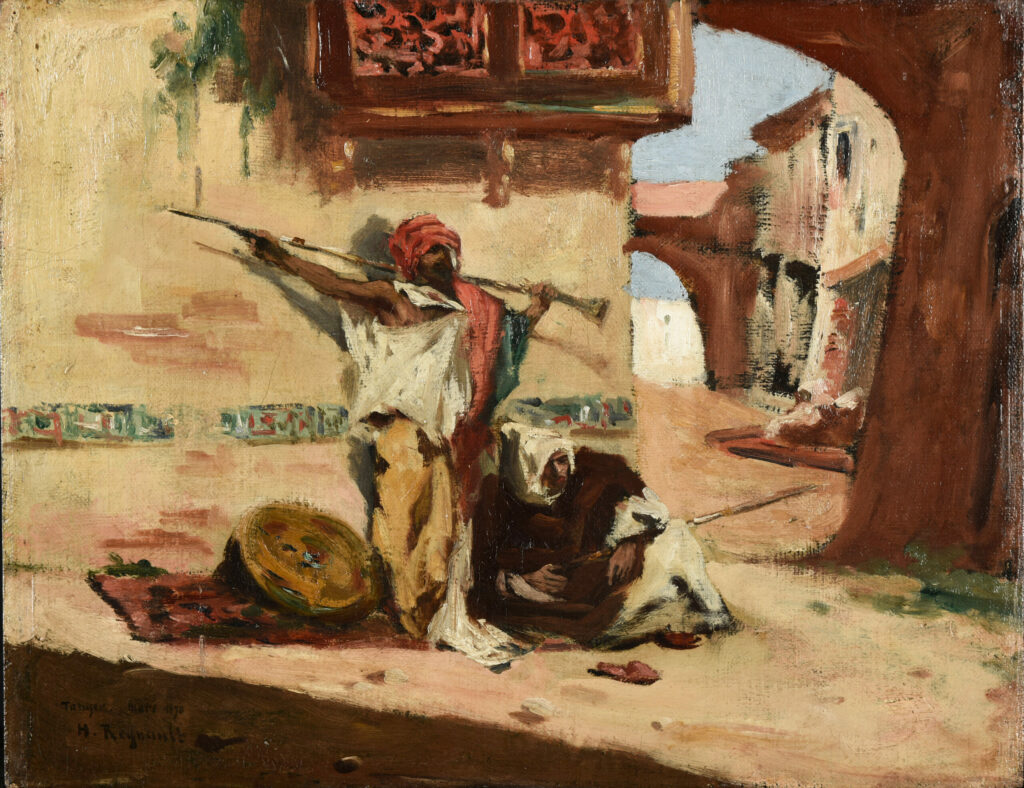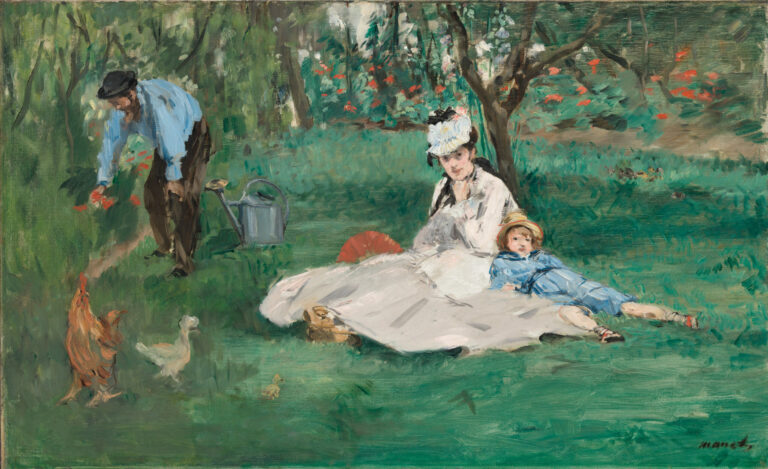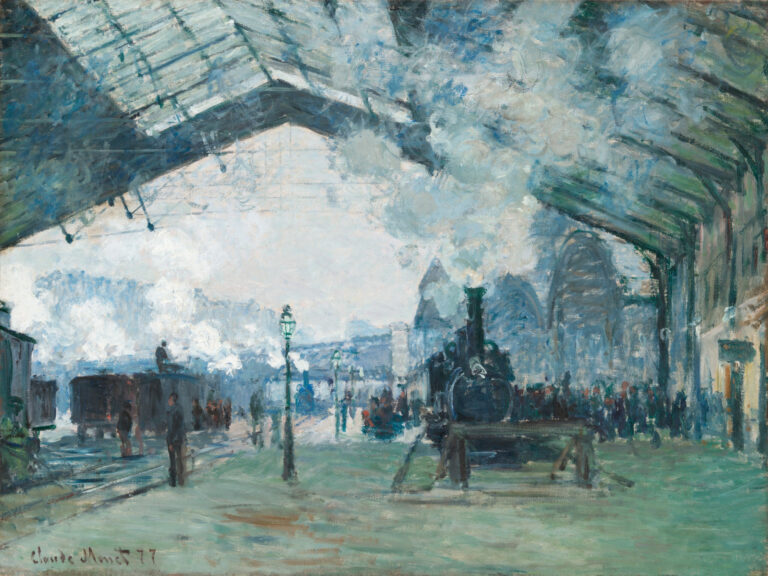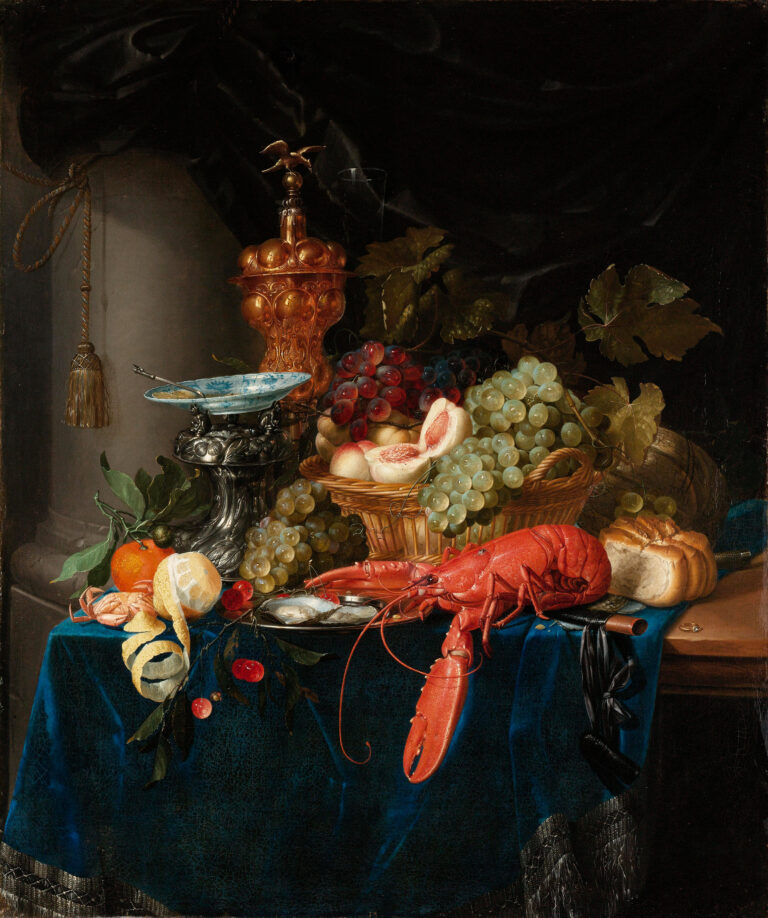
Painted in 1870 during his Moroccan sojourn, this “Moroccan Sentinel” reveals how Henri Regnault transformed his palette under the influence of Mediterranean light and bears witness to the Orientalist fascination that marked 19th-century French art.
The composition, structured in successive planes, skillfully contrasts the shadow of the foreground with the illuminated white houses of the background. The artist organizes his canvas around balanced diagonals: the cast shadow echoes the rifle of the standing guard, counterbalancing the receding perspective of the alleyway. Beneath the typical mashrabiya architecture, two sentinels rest in a nonchalant attitude that humanizes the scene. The ochre and reddish-brown colors, punctuated by touches of green, reveal a masterful chromatic harmony. The quick and impastoed brushwork, the synthesis of forms, demonstrate a pictorial modernity remarkable for the period, offering a glimpse of the great master Regnault could have become.
Further Information
- Henri Regnault, Moroccan Sentinel, Reims, Museum of Fine Arts (inv. 907.19.221) Photo: © Christian Devleeschauwer
- 31.6 x 40.9 cm, sketch, oil on canvas mounted on parqueted wood
- https://musees-reims.fr/oeuvre/sentinelle-marocaine
Henri Regnault (1843-1871) embodies the tragedy of a talent struck down by History. Winner of the Prix de Rome in 1866, this prodigy of the École des Beaux-Arts discovered Spain then Morocco, where he landed in Tangier in December 1869 with the plan to permanently establish his studio. This Oriental revelation radically transformed his art: his palette became luminous, his technique freed itself from academic conventions. But the Franco-Prussian War shattered this promising trajectory. Having returned hastily to France, he enlisted and met his death at Buzenval-Montretout in January 1871, at only 28 years old. His Moroccan work, though brief, reveals an exceptional temperament, combining classical rigor with emerging modernity, prefiguring the evolution of French painting.






